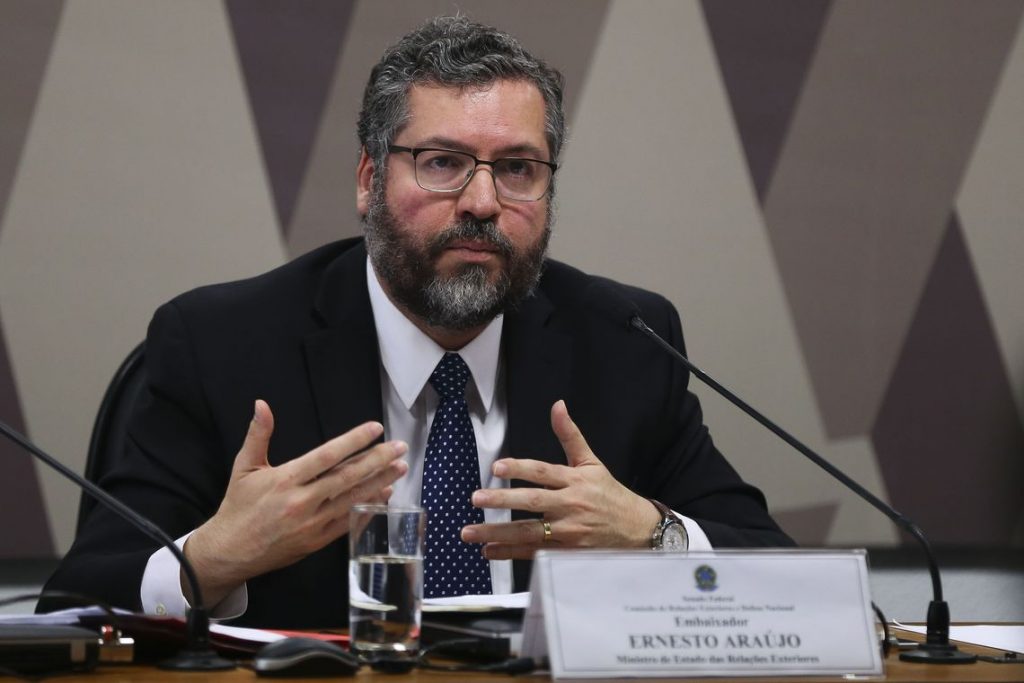Brasília – A day after returning from a presidential visit to Israel, Brazil’s Foreign Relations minister Ernesto Araújo said this Thursday (4) that president Jair Bolsonaro may visit Arab countries before July this year.
“In the next few days we will work out a schedule for the president’s visits to Arab countries. We will start with key partner countries of ours and then move on to other ones,” said Araújo after sitting in a hearing at the Senate’s Foreign Relations Commission. “We have made great advances with Saudi Arabia and the United Arab Emirates.”
According to the foreign minister, the administration intends to seek out “proficuous partnerships” in bilateral relations. “Our plan is to structure out our ties with any country to the benefit of our independence, autonomy and development, whether it be China, the United States, Israel or the Arab countries.”
At the hearing, Araújo was questioned whether current Brazilian diplomacy gets in the way of agribusiness. “The notion that our foreign policy harms agribusiness is being touted and hasn’t materialized in any shape. And I am certain that it will not.”
On Tuesday (2), Brazil’s minister of Agriculture, Livestock and Supply, Tereza Cristina, said Brazil is a friend to Arab and Muslim countries. According to her, efforts are underway to keep relations in good standing and increase cooperation in trade. Cristina also said she plans to meet next week with ambassadors from Arab and Islamic countries, in a bid to clear up misgivings stemming from the opening of a Brazilian trade office in Jerusalem to work on deals with Israel, as announced by Bolsonaro last Sunday.
The minister said the office is a compromise solution instead of the moving of Brazil’s Embassy in Israel from Tel Aviv to Jerusalem – which Bolsonaro had pledged to do while campaigning last year. According to Cristina, Arab countries are displeased with the matter, but she said the Agriculture Ministry must work to keep the dialogue going.
The Arab stance
Both Palestinians and Israelis claim sovereignty over Jerusalem. The UN and most countries support a two-state solution for the region (Israel and Palestine), whereby the city’s status would be resolved through peace talks.
The announcement of a Brazilian office was ill-received by Palestinians. All Arab countries officially support the two-state solution based on 1967 borders, with East Jerusalem as the capital of Palestine. As a result, as per a decision made during the Arab League Summit in Beirut, 2002, the entire bloc pledges to recognize the State of Israel. Jordan and Egypt are currently the only two Arab countries sustaining diplomatic ties with Israel.
The latest Arab League Summit took place last Sunday (March 31) in Tunis, while Bolsonaro was in Israel. Arab League members reaffirmed their commitment to the independence of Palestine. “We reiterate our rejection of all unilateral measures to change the legal status of Jerusalem,” Tunisia minister of Foreign Affairs Khemaies Jhinaoui said after the Summit.
*With information from the ANBA Newsroom. Translated by Gabriel Pomerancblum




